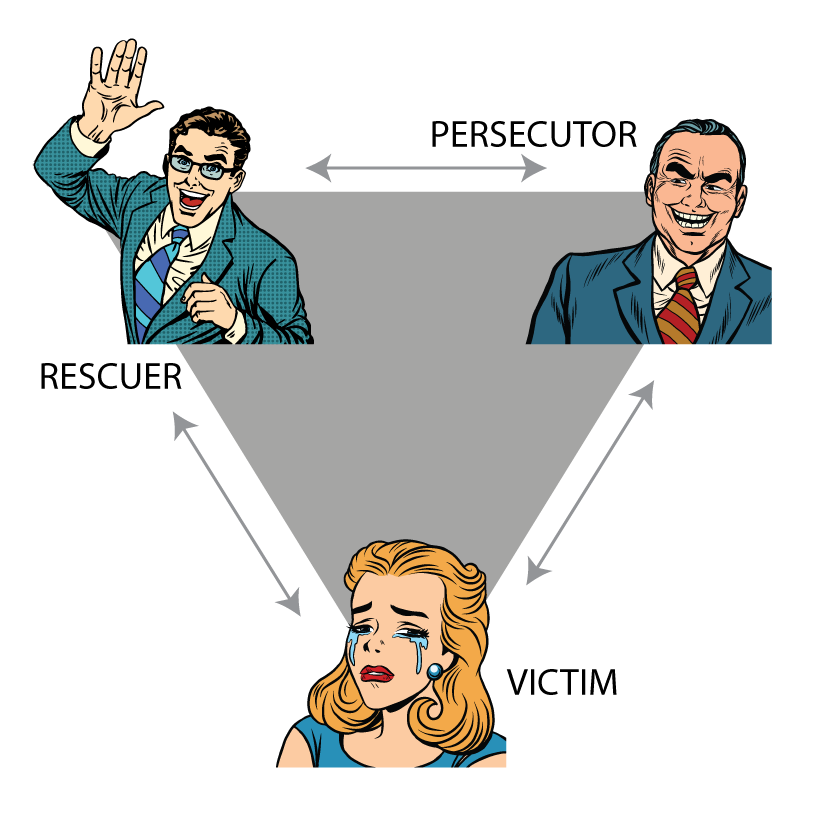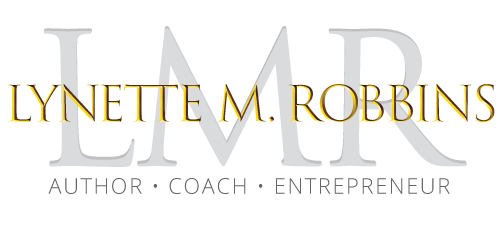The victim, the persecutor and the rescuer triangle is a powerful set of three that we could all experience at one time or another. It is often found in dysfunctional families and many other interpersonal relationships. The problem with this triangle is that no one can ever win because the roles shift and there is never a balance.
For example, a friend came to me and shared of her upset with her husband. She felt powerless and found her powerlessness was making her the victim and she wanted me to rescue her. In order to rescue this woman, I would have to confront her husband to see what he could doing to hurt her. I would then became the persecutor, he would then become the victim and then she could step in and become the rescuer by resolving the issue with her spouse. Her resolution would quite possibly include blaming me for overstepping my bounds. That would then put me in a negative light, thus shifting me to victim and her to persecutor. It’s a deadly triangle and no one ever wins. It always ends up with a lose-lose.
I worked with a professional who habitually—albeit unintentionally—created crises for his clients (as a persecutor) and then rescued them from the aforementioned crises, thus becoming the hero. I called him out on it and then he realized what he was doing. He had no idea.
Habitual victim attitudes are more common than the other two and the most self defeating as well as dangerous. Victims will, unknowingly, create drama. They love to be downtrodden because it reinforces their "not enough" poor self image. So they will set themselves up to be the victim or sabotage themselves. They might be on top of the world, but for the victim it is uncomfortable to be in control, successful, wonderful and number one. They get so overwhelmed that they do something to sabotage it, so they end up as the victim. Self-sabotage is when someone destroys everything that they have to reduce themselves down to the level of nothingness that they believe themselves to be. It is really scary to watch.
As a coach, people often ask me to monitor their behavior and let them know when they're starting to sabotage themselves. Quite often, people don't know they are doing it until after the fact. It is especially scary when I, as a coach, put so much energy into assisting people in their successes and then I see them destroy themselves because they can't handle their successes. People don’t realize that success is much easier to attain than failure. However, failure has been given to us to learn from. Generally, when there's a personal failure we learn about our own pillars of needy, seedy, and greedy.

If you analyze life's relationships, you may discover that the victim, persecutor, rescuer triangle is prevalent all around you. Awareness of the triangle is a tool to break free from the endless cycle and not get caught in its trap. We have the power to operate outside the triangle, from a position of neutrality to be free of it. Victims tend to blame others. But the blame could fall on themselves. Saying things like: “They screwed up,” “It’s them, the government,” or “It’s those people in the community.” Words and phrases like these are victim words blaming someone else for what is happening to oneself. We all have the power to shift our position and consider what we can do to create a ripple effect for change. When we use use our power for change, we stop playing the victim.
Instead of blaming "those" people in my community, I have choices. I can choose to move to another community or I can choose to stay in my community. If I choose to stay, I can choose to accept the others for who they are, or I can choose to become a positive influence for change.
Recognizing the Victim, the Persecutor, or the Rescuer, we can take the power we have within OURSELVES from a position of neutrality and build the power within.

